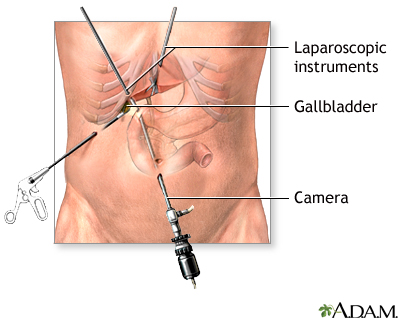| Step 5: Surgeries that can use bloodless methods |
A wide range of conditions can be treated through bloodless procedures. For example, there are ways to perform all of the following types of surgery without blood transfusions:
- Open heart surgery on both adults and children
- Vascular surgery
- Total hip and total knee replacements (arthroplasty)
- Prostate removal (prostatectomy) and other types of surgery on the urinary tract
- Hysterectomies
- Aneurysm repairs
- Neurosurgery (including brain tumor removal)
- Liver and other transplants
- Surgery to repair traumatic injuries (such as a lacerated spleen)
- Cancer treatment surgery
- Neonatal and pediatric surgeries
- Gynecological and urological surgeries

Go with the least-invasive methods
For a bloodless approach to be possible, the least invasive type of procedure available to treat your condition may be most appropriate.
For example, laparoscopic gallbladder surgery is more likely to be successfully "bloodless" than traditional open-abdominal surgery. With laparoscopy, a tiny video camera is passed into the abdomen through a very small incision. The operator can peer through the scope directly, or images can be broadcast onto a monitor. Other small incisions allow surgical instruments and retractors to be passed into the abdomen to perform the surgery. These "keyhole" incisions are likely to bleed far less than a traditional open-abdominal incision. However, this technique is not always appropriate (for example, due to the severity of gallbladder disease) and should be discussed with the surgeon in advance.

 | Click the icon to see an illustrated series explaining a laparoscopic procedure. |
Other forms of endoscopy involve the use of scopes that can travel through various parts of the body to examine, biopsy, or surgically treat a variety of conditions. Some types of endoscopy and the types of tissue that can be accessed include:
- Bronchoscopy (bronchial tubes, lungs)
- Colonoscopy/sigmoidoscopy (large intestine)
- Gastroscopy (stomach, small intestine)
- Hysteroscopy (uterus)
- Cystoscopy (bladder)
- Ureteroscopy (ureters)
- Arthroscopy (joints)
- Colposcopy (vagina, cervix)
If you are interested in pursuing bloodless techniques to treat a medical condition, be sure to speak extensively with your physician and other health care providers about the range of procedures available for treating your condition. You will want to make your preferences for bloodless surgery very clear. You'll also want to ask what kind of procedure is the least invasive and which may be the least likely to result in blood loss.
|
Review Date:
6/28/2011 Reviewed By: Frank A. Greco, MD, PhD, Director, Biophysical Laboratory, The Lahey Clinic, Burlington, MA. Review provided by VeriMed Healthcare Network. Also reviewed by David Zieve, MD, MHA, Medical Director, A.D.A.M., Inc. |
